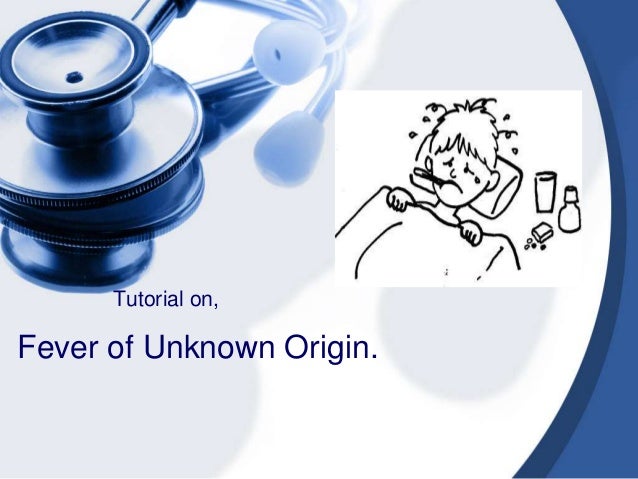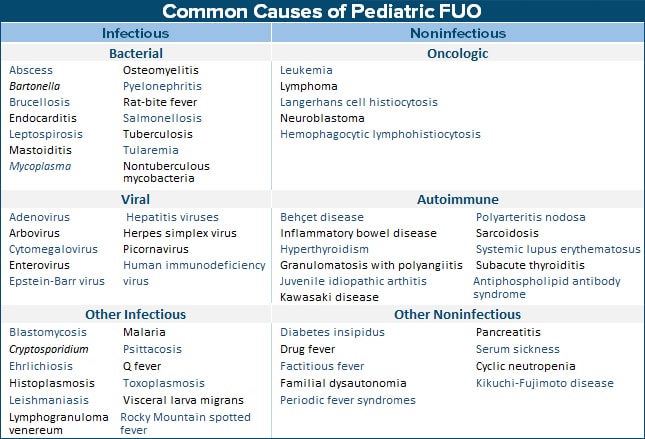Fever Of Unknown Origin In Adults
Fevers of unknown origin remain one of the most difficult diagnostic challenges in medicine. Because fever of unknown origin may be caused by over 200 malignant

Fever of unknown origin (FUO) in adults is one of the most vexing clinical conditions for clinicians and patients. There are no published guidelines, nor is there a


Mar 20, 2017 · Fever of unknown origin (FUO) was defined in 1961 by Petersdorf and Beeson as the following: (1) a temperature greater than 38.3°C (101°F) on several
An acute fever lasts 4 days or less but may continue for up to 7 days in more severe infections. Chronic fevers are usually recurrent fevers that persist over a long


A fever of unknown origin is a temperature that reaches 101°F (38.3°C) on and off for at least 3 weeks with no known cause. Fever is a symptom of another condition

Fever of unknown origin (FUO), pyrexia of unknown origin (PUO) or febris e causa ignota (febris E.C.I.) refers to a condition in which the patient has an elevated

A fever is a body temperature of 100.4 F or greater. Read about causes of fever in adults, symptoms, treatment, medications that may cause fevers, and different types



Fever of unknown origin (FUO) refers to elevated body temperature for which a cause is not found after basic medical evaluation.
July 15, 2014 Volume 90, Number 2 www.aafp.org/afp American Family Physician 91 Prolonged Febrile Illness and Fever of Unknown Origin in Adults
Mar 20, 2017 · The history can provide important clues to fever of unknown origin (FUO) due to noses, malignancies, and inflammatory/immune disorders. In adults with